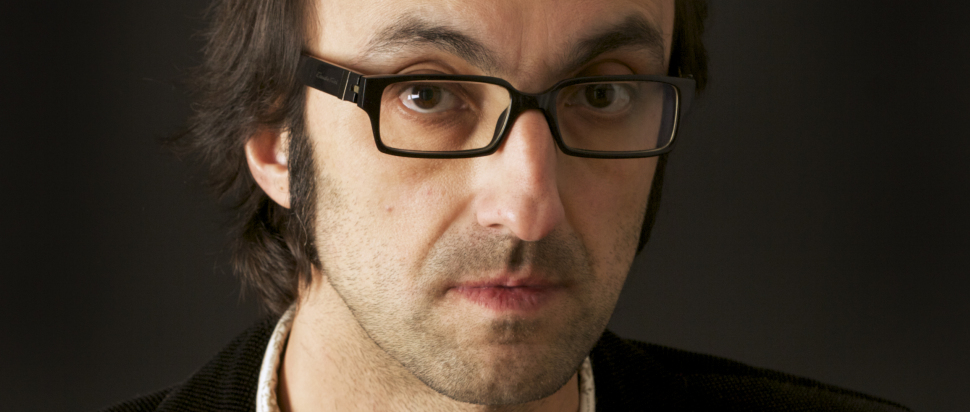Agustín Fernández Mallo on his eclectic catalogue of love
We chat with Spanish author Agustín Fernández Mallo about his novel The Book of All Loves and his atypical exploration of one of literature’s most familiar themes
When Agustín Fernández Mallo first encountered 18th-century Thaddäus Haenke’s classification of colours, commonly considered the earliest significant predecessor to the Pantone system, something clicked for him. “I suddenly thought I would like to make a Pantone, but not about colours; a Pantone of love,” he explains over our Zoom call. “It was something magical: I immediately started to write little lyrical texts about love and, for a year, I saw love and relationships of things with love everywhere, and in all kinds of situations and details. It’s like I was possessed by this way of thinking, seeing love everywhere and in everything.”
Indeed, Fernández Mallo’s resulting novel The Book of All Loves reads like the product of a poetic trance. Structurally, it is unexpected; it combines brief descriptions of different categories of love — ranging in tone from purely lyrical to rigorously academic — with puzzling dialogues between a man and a woman, a couple building a new world after ‘the Great Blackout’. Then, the novel veers into a more traditional narrative form, revealing the story of the couple, a writer and her husband, years earlier as a series of strange occurrences during a trip to Venice forces them to confront the end of the world they know.
This is not, however, a dystopian novel. Fernández Mallo is emphatic about it: “I’m not interested in the apocalyptic theme because I consider it to be a kind of religious and anti-anthropological lie,” he tells us. “In fact, my book is an optimistic story: the novel presents love as something that can be completely reconstructed to create a new world”. ‘The Great Blackout’, then, is not a biblical reckoning but a metaphor for the transformation of reality through our relationship with love and each other. We see this on display in the novel; the catastrophe begins as the characters discover areas in Venice where all sound seems to have disappeared. “It’s as if the lack of love in the world is actually erasing the ability to perceive it with our senses, with our bodies,” Fernández Mallo explains.
Although the absence of sound is only the first sign of what is to come, noise in general plays an important part in the novel and in the author’s work at large. A physicist by profession before becoming a writer, Fernández Mallo integrates a scientific perspective into his literature, using poetic devices to examine and reinterpret notions more commonly associated with other disciplines. “The fact that every sound has associated noise —because life is not pure and there cannot be life without noise— is a very important concept in physics and biology, and in arts for me,” he tells us. “I use noise as a metaphor for a more general sound of organic life and the creation of art. I mean, we create works from the symbolic residues or ‘noise’ of others.”
This is representative of love as Fernández Mallo conceives it in his novel; the idea of finding meaning at the fringes of traditional communication is central to The Book of All Loves. Within the snippets of dialogue, replies seem to be unrelated to the statements or questions that prompt them, but these inconsistencies often result in some of the most brilliant reflections in the book. “There is communication between characters but it is not structurally logical, mechanistic or algorithmic communication,” Fernández Mallo explains. “Lovers always construct a new kind of language, and it is very strange because it’s a language that only they can speak. [These are] the answers of people who are going to build a new world, answers for another world: they open other paths for reflection.”
But as the author reflects on these different manifestations of love, another question arises: if love can be found in an infinity of objects and ideas, how does one write a finite text about it? “For me, the honest way to write is when the objective of writing is my own investigation of the world. In general, I finish a book when it no longer presents a question to me,” he clarifies. “I have to admit I wrote a lot more fragments [of categories of love] that were not included in the book, but I had to find a balance between these fragments and the story in Venice – it’s an intuition, un balance poético,” he emphasises in Spanish.
“All generations have talked about love, so I couldn’t or didn’t want to write about it in a typical way,” he adds, when asked about the monumental task of approaching one of Literature’s central themes. But there is nothing typical about The Book of All Loves: as cryptic and experimental as it is beautiful and universal, this novel is a powerful exercise on reimagining love, the different configurations it can take, and our relationship with it, each other, and the world around us.
The Book of All Loves is out with Fitzcarraldo on 14 Feb
